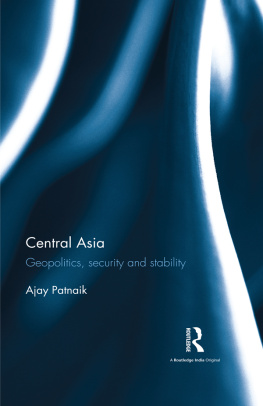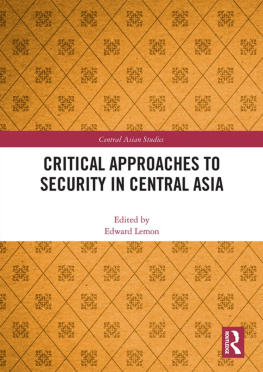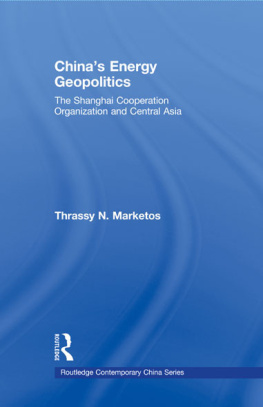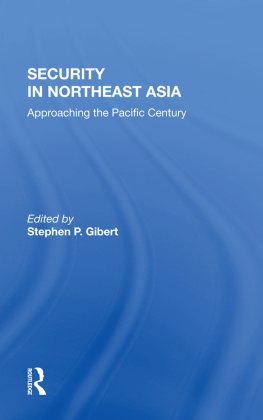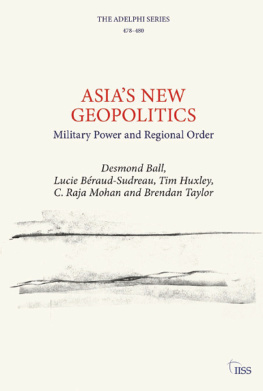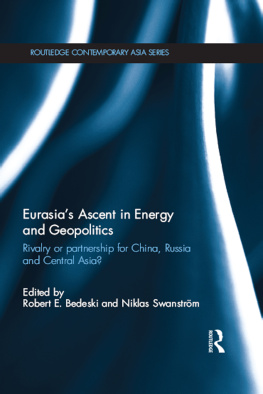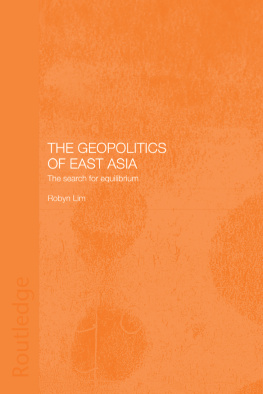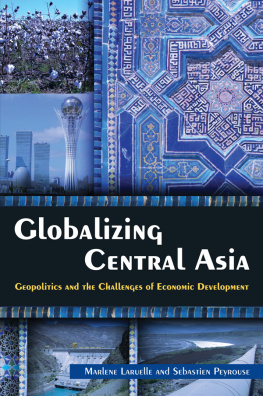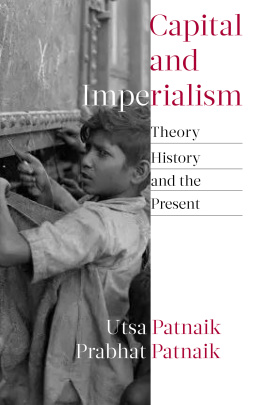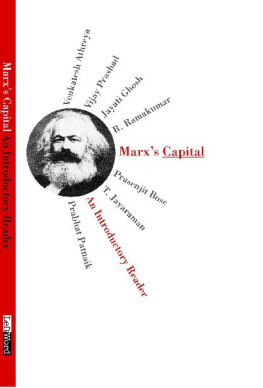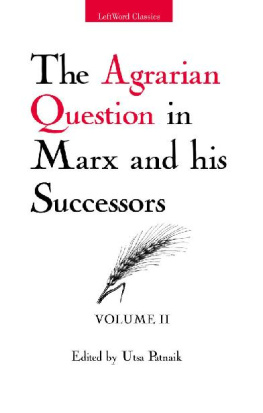Central Asia
Throughout history, Central Asia has formed an important strategic link between the East and the West and been described as the great pivot in the early twentieth century.
This book looks at the relations between the Central Asian states and major external powers. It shows how these nations have kept the fragile geopolitics of the region free of the so-called New Great Game. The volume evaluates the roles of major powers such as Russia, the United States, China, Iran and Turkey, as well as India and its Silk Road strategy. It also compares the regional geopolitics of Central Asia with its neighbour Caucasus. The study indicates how, despite limited interstate cooperation, the region has prevented conflicts and wars, due to which these states have been able to enjoy greater strategic autonomy in their dealings with other countries.
The book will benefit scholars and researchers of international relations, political and strategic studies, area studies and Central Asian studies.
Ajay Patnaik is Professor at the Centre for Russian and Central Asian Studies, Jawaharlal Nehru University, India. He has authored three books: Nations, Minorities and States in Central Asia (2003), Central Asia Between Modernity and Tradition (1995) and Perestroika and Women Labour Force in Soviet Central Asia (1989). He is also the Executive Editor of the journal Contemporary Central Asia.
First published 2016
by Routledge
2 Park Square, Milton Park, Abingdon, Oxon OX14 4RN
and by Routledge
711 Third Avenue, New York, NY 10017
Routledge is an imprint of the Taylor & Francis Group, an informa business
2016 Maulana Abul Kalam Azad Institute of Asian Studies
The right of Ajay Patnaik to be identified as author of this work has been asserted by him in accordance with sections 77 and 78 of the Copyright, Designs and Patents Act 1988.
All rights reserved. No part of this book may be reprinted or reproduced or utilised in any form or by any electronic, mechanical, or other means, now known or hereafter invented, including photocopying and recording, or in any information storage or retrieval system, without permission in writing from the publishers.
Trademark notice: Product or corporate names may be trademarks or registered trademarks, and are used only for identification and explanation without intent to infringe.
British Library Cataloguing in Publication Data
A catalogue record for this book is available from the British Library
Library of Congress Cataloging-in-Publication Data
A catalog record has been requested for this book
ISBN: 978-1-138-64002-3 (hbk)
ISBN: 978-1-315-63689-4 (ebk)
Typeset in Goudy
by Apex CoVantage, LLC
The Book is Dedicated to the Loving Memory of My Late Mother Nayana Patnaik
Contents
It was a pleasant evening in the autumn of 2009 when I landed at the Bishkek airport from Delhi. Waiting for the luggage, I could not but be impressed by the smart young American air force personnel walking in and out of the airport while impressive US aircrafts were parked outside. This is known as the Manas airbase, which actually is Kyrgyzstans main international airport. During my first visit to that country in 1998, it was a small Soviet-era airport, which became a modern one after the American base came to be located there.
As the Americans moved quickly to station troops in Central Asia in the wake of the September 2001 terrorist attacks in New York, the Russians looked helpless to prevent this geopolitical shift. Things looked rosy for the United States, with most states in the region appearing eager to get American attention. Money flowed to countries that collaborated with the United States. Uzbekistan, which had earlier joined a pro-US regional organisation called GUAM (which then included Georgia, Ukraine, Azerbaijan and Moldova), came to host an American military base in Khanabad. The US military bases in Kyrgyzstan and Uzbekistan in 2001 appeared like the last nail in the coffin of Russias Central Asian policy. Two years earlier, Uzbekistan had left the Russia-led Collective Security Treaty (CST), and the project to build a new pipeline bypassing Russia had started. The Baku-Tbilisi-Ceyhan (BTC) pipeline would be the first one in post-Soviet Russia to take energy to Europe bypassing Russia.
What would happen to all the efforts that Russia made to regain its influence in the post-Soviet space? Would Russia again become a helpless former power that it had become during the Yeltsin years? What about the changes brought about by Primakovs and Putins initiatives to refocus on the near abroad, a term invented to describe other post-Soviet states? Obviously, the geopolitical shift since 1999 was taking place in the backdrop of the 1998 economic crisis that had a paralysing impact not only on the Russian economy, but also on its influence abroad. Its attractiveness was at its nadir. Russia was trying to move away from Yeltsin-era dependence on the West, but new partners were hard to find. Was it going to be a regional nonentity in Central Asia, or was it going to get into a shell demarcated by its geographical boundaries?
During a trip to Central Asia in 2005 (which included a months travel in Kazakhstan, Kyrgyzstan and Uzbekistan), I realised what superb realists Primakov and Putin were. Travelling with my PhD student, Indira Musaeva (who has now completed a doctoral degree), to her mothers home in a small town called Karabalta, not far from Bishkek, I saw a signboard on the way that pointed to a road leading to Kant, a Russian airbase. The Russian men there seemed as smart as their American counterparts. The Russian base was a much bigger one than the American one in Manas, and unlike the Afghan-centric activities of the US base, the Russian base here focused on Central Asian security.
Primakov and Putin proved to be much smarter and couched their realism in the language of idealism multipolar world order, Eurasianism, defending secularism and stability as common priorities. It is not as if the United States and the West did not use normative rhetoric to mask their geopolitical ambitions. Instrumentalising issues like democracy and human rights, in fact, gave the United States dividends in Georgia and Ukraine. But similar successes were not registered in Central Asia. In the same year of my travel mentioned above, Uzbekistan asked the Americans to vacate the Khanabad-Karsi military base, since the United States had raised human rights issues on the way Uzbekistan handled militant attacks in the city of Andijan in May 2005. Though I had travelled to Central Asia earlier, the trip in 2005 let me feel the changes happening in the geopolitics of the region.
Since then, over countless trips to the region, I have seen how Russia has slowly but surely increased its influence in Central Asia. During the last few years, one could see huge Chinese economic activities in the region as well, not just in terms of trade, but also in the scale of its investment. American and Europeans are still courted by the regional states. India has in recent years shown more active interest, and other regional powers like Turkey and Iran are also engaged in Central Asia. Yet, as this research would argue, the region is not a theatre of the so-called New Great Game. In the chapters that follow, we would argue why. This is proposed to be done in a comparative manner that would give a better idea as to why the New Great Game is a misnomer in Central Asia. The comparison would be with the Caucasus region, which shares a lot of historical and cultural similarities and resources with Central Asia that attract outside powers.

